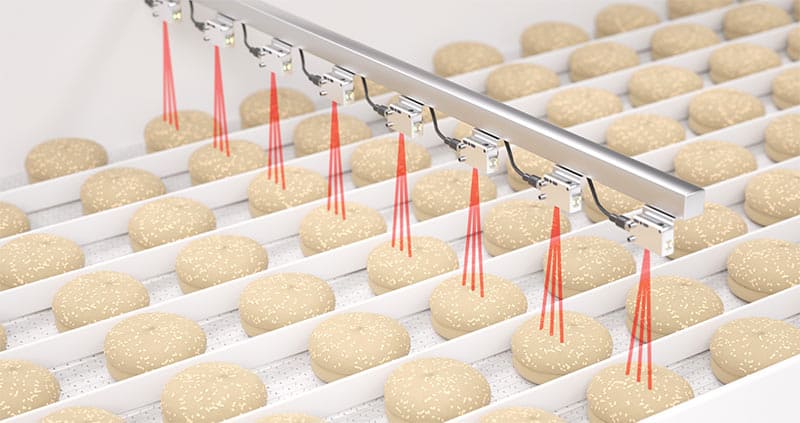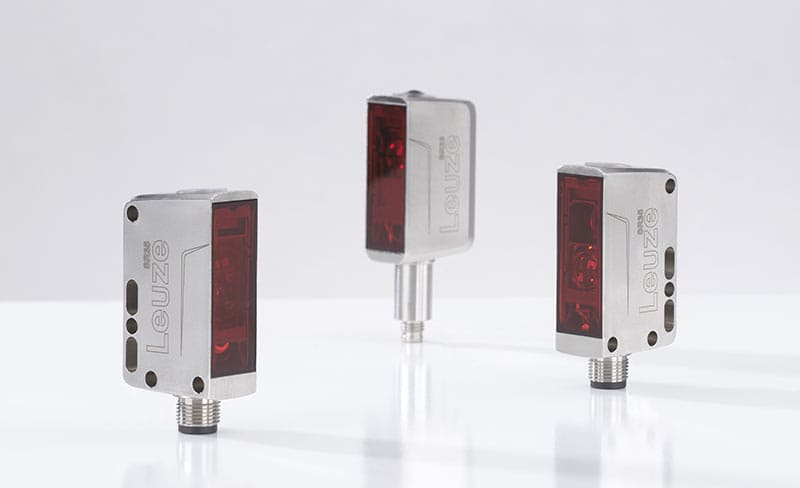Hygienic production and packaging processes place high demands on sensor technology, which must be robust, reliable and approved for direct contact with food. System operators are playing it safe with two new sensor series from Leuze in stainless steel housings. Thanks to the smooth housing contours without mounting holes, the 33C series is particularly suitable for applications in the food, beverage or pharmaceutical industries, even in system areas that do not package products. The 35C series is designed for robustness; it withstands high mechanical loads and is ideal for intensive cleaning processes. The 35C series sensors can also be used in the food industry. They are also ideal for the automotive industry and tool manufacturing.
Solutions for packaging processes
Each of the two series includes optical, through-beam and retro-reflective sensors. The 33C and 35C series also contain special solutions for packaging processes. These include retro-reflective sensors for glass and PET detection, sensors with background suppression for detecting small objects, dynamic reference sensors and through-beam sensors for film illumination. The small housing size of the new 33C and 35C series complements the stainless steel miniature sensors of the 53C and 55C series.

Ready to go with Power PinPoint LED
Leuze’s new 33C and 35C series offer sensors with Power PinPoint LED for the first time. This lightweight technology makes it particularly quick and easy to align and operate the sensor. This is achieved by a bright, round and uniform spot of light. It precisely maps the sensor’s response behavior. The size, shape and uniformity of the light spot remain constant over the entire working area. Instead of the Power PinPoint LED, a laser or infrared device can also be used as the light source.
Fully sealed
Sensors in plastic housings often have to be protected in harsh environments by specially manufactured, structurally complex stainless steel housings. Only then can they withstand high hygiene standards and cleaning with high-pressure cleaners. With the stainless steel sensors of the 33C and 35C series this is not necessary. This reduces system complexity, eases installation work and lowers costs. Protection classes such as IP67, IP68 and IP69K as well as ECOLAB, CleanProof+ and Diversey certifications ensure that the devices also work reliably in wet locations and during intensive cleaning processes.
Smart communication
Another advantage: both series are equipped with an IO-Link interface. This allows for quick and easy parameterization. Plant operators also receive diagnostic data via the interface, making it possible to plan predictive maintenance.

